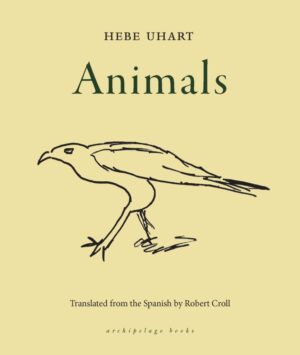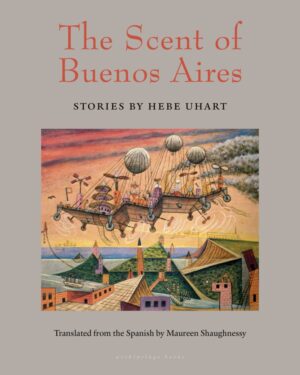Hebe Uhart

Born in 1936 in the outskirts of Buenos Aires, Hebe Uhart is one of Argentina’s most celebrated modern writers. She published two novels, Camilo asciende (1987) and Mudanzas (1995), but is better known for her short stories, where she explores the lives of ordinary characters in small, Argentine towns. Her Collected Stories won the Buenos Aires Bookfair Prize (2010), and she received Argentina’s National Endowment of the Arts Prize (2015) for her trajectory as well as the Manuel Rojas Ibero-American Narrative Prize (2017).
Her writing, which presents a characteristically criollo language, is identified with a quirky, understated syntax that constructs an odd perspective on the quotidian life in South America. Rodolfo Enrique Fogwill, author of Malvinas Requiem, named her the “greatest contemporary Argentine writer.” About her writing, scholar and essayist Ricardo Piglia said: “I am not interested in satisfied writers. The best tradition of Argentinean literature is built through vacillations, through that ambiguous narrator that can be found in Hebe Uhart or Borges, where meaning is never fully constructed and is opposed to other traditions in which the narrators are convinced of the universe’s structural order.”
Showing all 2 results
Showing all 2 results


